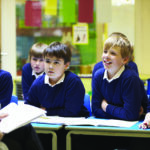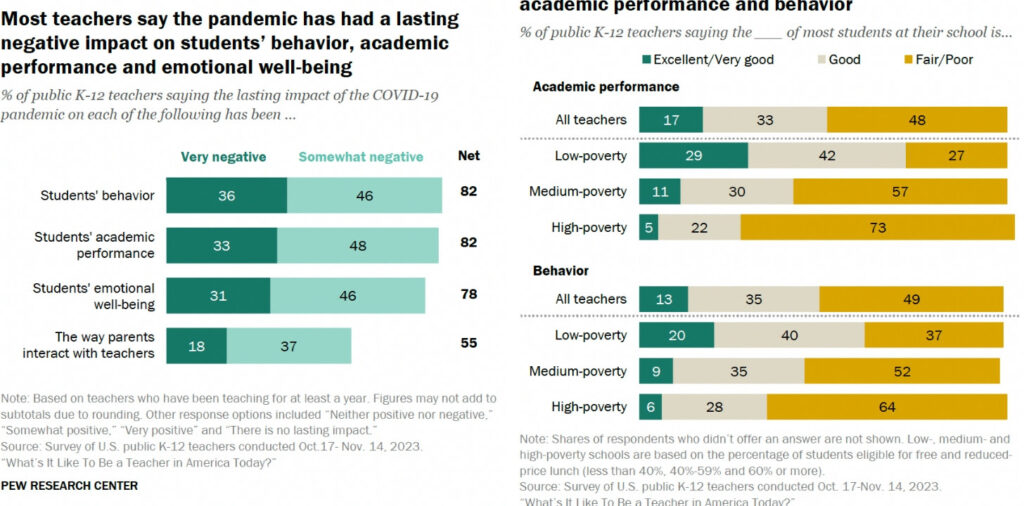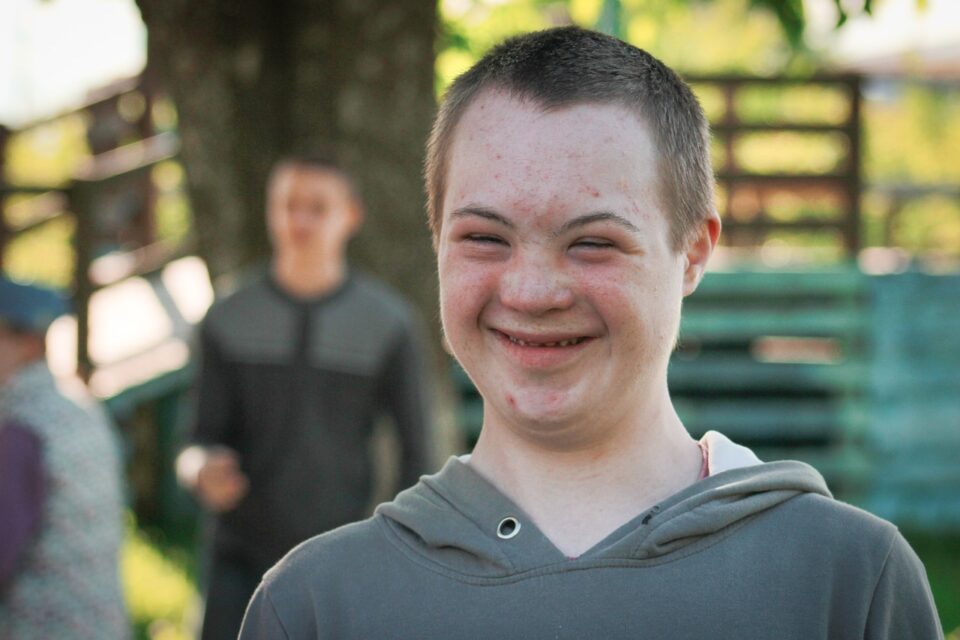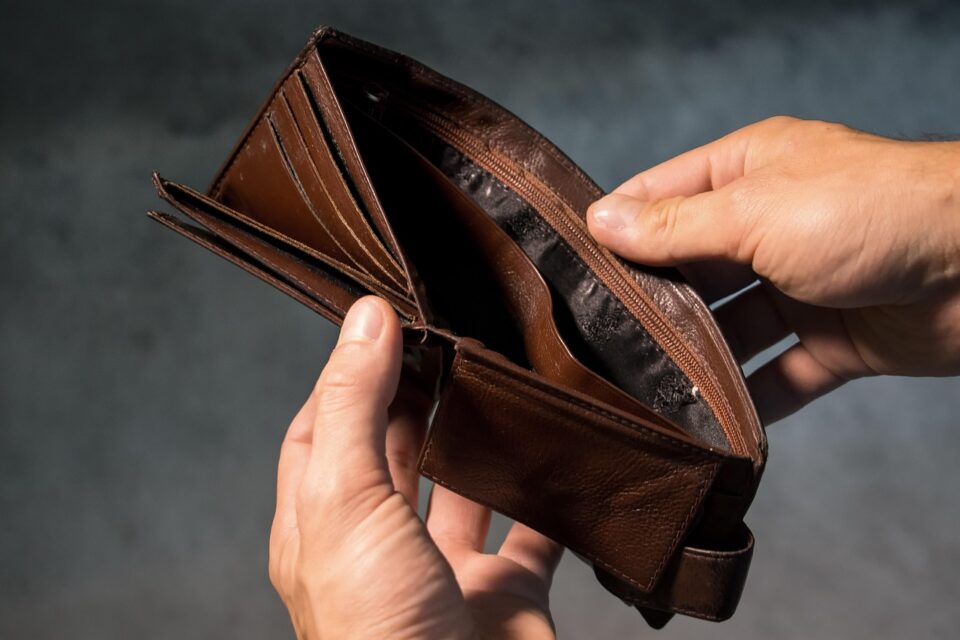
New Parent Survey: Don’t Lock Up Our Kids’ Cell Phones
April 5, 2024
Our Public and Non-Public Schools Need More Funding To Maintain Diversity
April 8, 2024Post-COVID, Most Teachers Say Student Learning and Behavior Is Declining
Yesterday the Pew Research Center published the results of a survey asking teachers across the country how well students were learning and how they were behaving. Here are the results
- 48% of teachers say the academic performance of most students at their school is fair or poor; a third say it’s good and only 17% say it’s excellent or very good.
- 49% of teachers say students’ behavior at their school is fair or poor; 35% say it’s good and 13% rate it as excellent or very good.
Overall, 80% of American teachers say that over the last five years the status of K-12 public education is worse than it was before and they expect it to be even worse five years from now. Only 20% of teachers think it will get better.
Last week the New York Times concurred:
“Today, there is broad acknowledgment among many public health and education experts that extended school closures did not significantly stop the spread of Covid, while the academic harms for children have been large and long-lasting.”
This cuts across all grade levels, although teachers say the worst academic progress and behavior they see is at middle schools; also, the worst outcomes in both areas is primarily seen in students from low-income households. “Most teachers from high-poverty schools say the academic performance (73%) and behavior (64%) of most students at their school are fair or poor. Much smaller shares of teachers from low-poverty schools say the same (27% for academic performance and 37% for behavior).”
Only 11%-15% of teachers believe the pandemic has had no permanent impact on student academic growth and behavior. Eighty percent of teachers believe “the lasting impact of the pandemic on students’ behavior, academic performance and emotional well-being has been very or somewhat negative.” When teachers were asked about what they saw as the cause of these problems, they listed poverty, depression/anxiety, bullying, and chronic absenteeism.
Regarding discipline problems, the majority of teachers believe that the state education agency, local school boards, and parents have too much influence on the lack of sanctions for poor behavior. Sixty-seven percent said teachers don’t have enough impact on determining how to best control misbehaving students.
The Pew survey is national and New Jersey is no outlier. Kimberlee Shaw, the president of the Lakewood teachers union, explained in an interview,
“Behavioral concerns are now seen across all grade levels, even as early as pre-K. Students have been fighting and even our members have been attacked by students. There have been reports of items being thrown at staff members, spitting, kicking, punching, fighting, and the use of foul language, and students threatening teachers, often reported in real time, with minimal to zero consequence.”
The survey polled teachers on a variety of factors related to student behavior, academic performance, and emotional well-being. They were asked to choose among “Excellent/Very good,” “Good,” “Fair/Poor,” “Somewhat Negative,” and “Very Negative.” The results are below.





